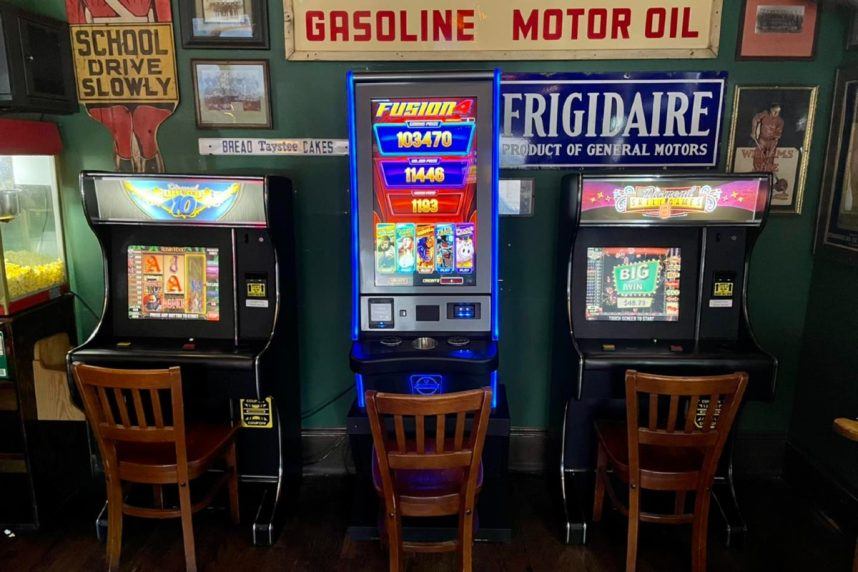- Michigan businesses are reportedly complying with skill games rules
- State officials and gaming regulators say the games constitute illegal gambling
The hundreds of small businesses, fraternal clubs, and charities in Michigan that housed unregulated skill games have largely complied with the state’s order to get rid of the machines.

The Michigan Attorney General’s Office and Michigan Gaming Control Board (MGCB) maintain that slot-like skill games, referred to as amusement “nudge” redemption machines, constitute illegal gambling. In September, the MGCB warned restaurants and bars, clubs, and charity groups that their continued housing of the unregulated gaming terminals could result in criminal penalties.
Unlicensed casino-style machines are illegal and carry serious penalties,” the MGCB wrote in the September notice. “These machines often appear as ‘skill-based’ or ‘redemption’ games, but meet the legal definition of gambling under Michigan law.”
Businesses convicted of housing the machines face criminal charges under the Michigan Consumer Protection Act, which prohibits confusing consumers about their legal rights. Businesses face fines of up to $25K with prison time possible for repeat offenders.
Machines Evicted
A recent report from WOOD TV/NBC8 in Grand Rapids finds that many former skill game host establishments have complied with the MGCB order in response to the threat of prosecution. From American Legion posts to bars and restaurants, the news report detailed various business owners and employees assisting in the removal of the unregulated gaming machines.
When you’re in a nonprofit and it’s a place for our veterans to go and relax, these machines were an activity for our members,” said Bob Chapin, commander of the American Legion Boat and Canoe Club Post 258. “I feel really sorry for our members who were using them. I’ve got to find some replacement activity.”
Chapin said Post 258’s gaming machines made about $500 a week, revenue he’ll now need to find elsewhere.
A spokesperson for the Michigan Redemption Gaming Association, which is lobbying state lawmakers in Lansing to pass legislation to legalize, regulate, and tax skill games, said the MGCB and attorney general’s actions are “an unbelievable story of how the casinos are exerting their influence.”
“These games are electronic contests that require the use of buttons and joysticks to play and win. In these challenging times, Michigan lawmakers should be doing everything in their power to help small businesses survive, and that includes recognizing the important role of redemption games to drive traffic and bring in revenues,” the MRGA added.
AG Opinion
In February, Michigan Attorney General Dana Nessel clarified the state’s position on skill games and other illegal gaming machines, and how common violators function.
Illegal gaming machines resemble casino slot machines. They have multiple wheels and symbols, such as cherries, sevens, and bars, along with a pay table showing potential prizes. Players insert cash or credits and spin the wheels. Some machines let players adjust a wheel to line up the symbols. Despite claims of ‘skill,’ these games rely on preset outcomes or random number generators, making them games of chance. Winnings may be given in cash, gift cards, or other prizes, which violates Michigan law,” Nessel’s office explained.
MGCB Executive Director Henry Williams added that the state is “dedicated to upholding regulations and safeguarding the integrity” of the state’s gaming industries, which include commercial casinos in Detroit, iGaming, in-person and online sports betting, and tribal casinos.
“Illegal gaming remains a serious threat to Michigan residents and their communities. Unregulated machines often result in financial harm and other associated problems. Additionally, these illegal operations cause a loss of state revenue, depriving schools and communities of vital funding,” said Williams.
The post Michigan Businesses, Social Clubs Largely Adhere to Order Regarding Skill Games appeared first on Casino.org.






